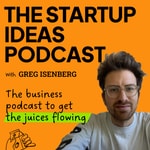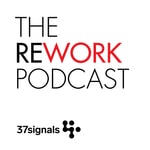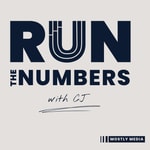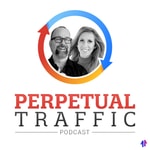Practical Founders Podcast – Details, episodes & analysis
Podcast details
Technical and general information from the podcast's RSS feed.
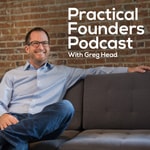
Practical Founders Podcast
Greg Head
Frequency: 1 episode/7d. Total Eps: 140

Recent rankings
Latest chart positions across Apple Podcasts and Spotify rankings.
Apple Podcasts
🇨🇦 Canada - entrepreneurship
28/04/2025#74🇨🇦 Canada - entrepreneurship
27/04/2025#93🇨🇦 Canada - entrepreneurship
26/04/2025#65🇨🇦 Canada - entrepreneurship
25/04/2025#70🇩🇪 Germany - entrepreneurship
23/12/2024#99🇬🇧 Great Britain - entrepreneurship
17/10/2024#85
Spotify
No recent rankings available
Shared links between episodes and podcasts
Links found in episode descriptions and other podcasts that share them.
See all- https://sparktoro.com/
283 shares
- https://basecamp.com/
262 shares
- https://www.salesforce.com/
255 shares
RSS feed quality and score
Technical evaluation of the podcast's RSS feed quality and structure.
See allScore global : 62%
Publication history
Monthly episode publishing history over the past years.
#114: Practical Founder Plays to Win Among Giant Partners and Competitors – Guy Rubin
Season 1 · Episode 114
vendredi 11 octobre 2024 • Duration 57:57
Guy Rubin is the co-founder and CEO of ebsta, a revenue intelligence platform that works with Salesforce and Hubspot to automatically analyze existing data to improve sales performance. Started in London in 2012, ebsta found success in the early days of the Salesforce marketplace and addon economy as a data tool integrated with customer emails.
ebsta has since become a complete revenue intelligence platform, serving sales teams with 10-100 sales reps. With 400 customers, 30 employees, and no VC funding, ebsta competes with a focused approach to play in the massive Salesforce ecosystem and against huge competitors.
Guy talks about their many pivots, running the business with his wife as cofounder, and the benefits and challenges of not being in San Francisco with VC funding. With deep data across thousands of sales reps, ebsta publishes an annual ebsta Sales Benchmark Report with specific data about close rates, quota attainment, and data-driven factors to improve sales performance.
Podcast Sponsor – Full ScaleThis week’s podcast is sponsored by Full Scale, one of the fastest-growing software development companies in any region. Full Scale vets, employs, and supports over 300 professional developers, designers, and testers in the Philippines who can augment and extend your core dev team. Learn more at fullscale.io.
Quote from Guy Rubin, CEO of ebsta
“We found ourselves in a place where we had some amazingly talented, very driven, very focused doers, and they were happy to work together as a common goal and get stuff done.
“What moved the bar for me as the CEO was bringing on board advisors. I’ve now got four board advisors and a chairman sitting around me. We also brought on a CTO, CPO, and CFO, who are very experienced.
“So bring in those experts around you, people independent of those doing the doing. Don’t get me wrong; you need the doers. They’re absolutely vital, but I also needed experts to help me at the running stage.
“That was the best thing I ever did: bringing those expert advisors in. And if you’re small, I would encourage founders to ask different people to be advisors to give you an outside perspective. You’d be surprised if people love being asked for help and ask you some difficult questions.”
Links The Practical Founders PodcastTune into the Practical Founders Podcast for weekly in-depth interviews with founders who have built valuable software companies without big funding. Subscribe to the Practical Founders Podcast using your favorite podcast app.
Get the weekly Practical Founders newsletter and podcast updates at practicalfounders.com.#113: Grew and Sold a Simulation Learning Platform for Higher Education - Stu Draper
Season 1 · Episode 113
vendredi 4 octobre 2024 • Duration 01:08:09
Stuart Draper founded Stukent, an innovative ed-tech company that provides simulated internships for business students. Stukent started by focusing on high-quality digital marketing education for colleges and universities using up-to-date digital textbooks and content. They then added a simulation system for students to practice their digital marketing skills.
Stukent grew steadily with less than $1M in outside funding, which helped them bridge the long and seasonal buying cycles of big schools. The team grew to over 100 employees and nearly $10 million in revenue serving marketing professors and their students.
In 2021, they engaged with Vista Point Advisors, an M&A advisor firm, to shop the company to prospective buyers and investors, eventually getting a majority investment from Tritium Partners. Stuart describes the M&A process, what worked well, and how he transitioned out of the company after two years of continued growth.
Podcast Sponsor – Cypress Growth Capital https://cypressgrowthcapital.com/practicalThis week’s podcast is sponsored by my friends at Cypress Growth Capital. For 15 years, Cypress has provided non-dilutive growth funding to bootstrapped SaaS founders, including many successful founders I’ve interviewed here on this podcast.
Quote from Stuart Draper, founder of Stukent
“When we officially sold a major part of our company to investors, we had a brief celebration. My CFO and I called each other and screamed as loud as we could on the phone in a fun moment. We got there, we did this. My family also took a big trip and I got a break.
“But then it was back to work. I was still the CEO and I still run this thing and I’ve got new investors that also need returns. I’m going to go deliver for these guys. They gave me a big payday, so I’m going to make sure they have a win too.
“After the second board meeting with our investors, I realized this is way harder than I thought. After eight board meetings and doubling the business again, I wasn’t enjoying this as much anymore. The board meetings were hard for me. Prepping for them was super stressful.
“So we found a new CEO for Stukent, and he’s doing great. Now I get to sit back in my chair at the board meeting, listen in, share my advice and opinions and come back in three months.”
Links The Practical Founders PodcastTune into the Practical Founders Podcast for weekly in-depth interviews with founders who have built valuable software companies without big funding. Subscribe to the Practical Founders Podcast using your favorite podcast app.
Get the weekly Practical Founders newsletter and podcast updates at practicalfounders.com.#103: Healthcare Software Startup Sold to VC-Funded Competitor During COVID Era – Ian Manners
Season 1 · Episode 103
vendredi 26 juillet 2024 • Duration 01:05:18
Ian Manners was a successful consultant for pharmaceutical companies in the US when he discovered a major problem that needed a software solution. Big pharma companies provide financial assistance funding for patients who require their drugs but struggle with high costs, but these funds are difficult to access and manage for patients and healthcare providers.
Ian and his cofounder created Vivor in 2014 to connect this financial assistance funding to patients through healthcare providers like hospitals, medical offices, and healthcare networks. The bootstrapped software startup grew slowly at first but eventually became profitable as it scaled up. Since inception, Vivor has helped over 100,000 patients receive over $2 billion in financial assistance to offset the high costs of prescriptions.
During the COVID crisis that hit the US healthcare industry, Ian decided to merge Vivor with TailorMed, a VC-funded competitor, in a cash and stock deal. He stayed on for two years during the transition and is now looking for his next entrepreneurial adventure in healthcare software.
Quote from Ian Manners, cofounder and former CEO of Vivor“The overall idea of merging our companies and having stock and some cash in our acquisition structure made sense for both parties. If the company that’s acquiring your company is huge and they’ve got big cash reserves, they buy someone out. But if you’re combining with another startup, that cash is precious. They don’t want to spend all of it.
“So it really makes sense to do a combination of the two and to include equity in the deal. I think that part was absolutely a win-win, even when, as you’re going through that process, you negotiate all the details.
“It’s a huge bet for us to take equity as part of our deal, We became an investor in the company that bought us.. I think for anyone facing something similar, my advice would be to just slow down that part of it and really think about and digest the fact that you’re becoming an investor in the combined company. “
Links The Practical Founders PodcastTune into the Practical Founders Podcast for weekly in-depth interviews with founders who have built valuable software companies without big funding. Subscribe to the Practical Founders Podcast using your favorite podcast app.
Get the weekly Practical Founders newsletter and podcast updates at practicalfounders.com.#13: Founder with 2 exits shares how he achieved real product-market fit twice - Seth Radman
Season 1 · Episode 13
vendredi 16 septembre 2022 • Duration 01:00:55
Seth Radman created, grew, and sold two music app startups in his twenties. A saxophone player in his college marching band, Seth was passionate about helping musicians and school band directors to improve how they learn music using technology.
Seth was the founder and CEO of Crescendo, an interactive music trainer that provides real-time performance assessment feedback using acoustic pitch detection and machine learning as a mobile app. With a little angel funding, Crescendo grew to over 1M users and 7,000 schools before being acquired by Ultimate Guitar in 2018.
He was also co-founder and CEO of Upbeat, a bootstrapped startup providing a virtual music collaboration platform for school music departments. When schools shut down during COVID, Upbeat allowed musicians to rehearse and perform music virtually with others in real-time without sound delays. Upbeat grew to over 200,000 users in 12 months and was purchased by 5,000 schools before being acquired in 2021 by MakeMusic.
"Having a company acquired seemed like this big elusive goal that every founder wants to achieve. And then I did it. And then I wasn't sure what to do next at all, I was completely shocked on the first day," Seth says.
"I say it was one of the happiest days of my life when I saw the money hit the bank. And then the day after, that was probably one of the most depressing days of my life, because I was like, whoa, what do I do now? I definitely thought there was a little bit of loss of identity for me going through that.
"And I spent the next several months kind of doing nothing. I was honestly just depressed. I just felt super lost and was not sure what to do. And that was a really tough period. "
In this episode, Seth explains:
- How he had hundreds of product ideas, did hundreds of customer interviews, and ran dozens of experiments to eventually find problems that customers would actually pay to solve
- What product-market fit really means to him and why it's so important to experiment before you invest lots of time and money
- Why he felt that he wasn't the right person to scale up his first company and the deep anxiety he felt when he successfully sold it
- How he's managing the emotional ups and downs of being an entrepreneur now after experiencing mental health challenges
- How he leveraged an existing customer base and channel to rapidly grow his second startup as COVID lockdowns created an acute problem in the music teaching industry
- How he developed a strong persistence habit as a musician that helped him do hard things every day that he didn't want to do
#12: Practical investor provides savvy help for vertical SaaS founders – Dougal Cameron
Season 1 · Episode 12
vendredi 9 septembre 2022 • Duration 54:52
Dougal Cameron created Golden Section to provide support and practical funding to SaaS founders with deep experience in select vertical markets. Their founder-first approach is different than the traditional VC or private equity investment model which often doesn't work out well for founders in the end.
Dougal's family had been investing in software companies for over 20 years through their Houston-based family office. Now Golden Section includes a founders studio for venture development, a world-class software product development service, and optional equity funding for B2B SaaS founders with deep domain experience in their industries.
This is an example of one of many possible ways that funding can be practical and helpful for founders who want to accelerate growth but don't want to play the unicorn-hunting grow-or-die game required by most venture capital investors.
"Our capital needs to look very different than the traditional venture capital side, where 66% of the time venture-backed founders make nothing when their company sells. And that's companies that get to an exit," says Dougal.
"I think that's a horrible statistic that really reveals some of the problems in the venture capital industry. It doesn't make a ton of sense for founders who see a clear problem that they know very well and they know people are going to buy their solution."
In this episode, Dougal explains:
- Why traditional venture capital investment is not a good fit for certain kinds of software businesses
- The hard lessons he has learned from years of investing in software companies and running software companies himself
- How they have designed their investment model to support founder-friendly exits where everyone can win: founders, investors, employees, vendors, and customers
- How they provide deep support for the founders they partner with, including software development services, growth advisory, and execution advice in every aspect of the company
- What Golden Section does to support the brutally hard emotional journey that all founders go through as they grow their companies
Find the show notes for this episode at practicalfounders.com.
#11 - Bootstrapped to exit in 6 years against funded competitors - Sean Meister
Season 1 · Episode 11
vendredi 2 septembre 2022 • Duration 50:35
Sean Meister was a sales professional and leader with a successful career selling hospital and medical supplies before he left to join his long-time friend who had a vision for a new software company serving smaller trucking fleets with simple GPS-tracking fleet management software.
Sean was a co-founder and COO of M2M in Motion, a self-funded software company based in the Chicago area. Sean wasn't the trucking industry expert, the crazy entrepreneur, or the visionary salesperson. He provided the savvy help to get the company started and the operational leadership to build a scalable sales team, reliable product development, and quality customer operations.
M2M in Motion was bootstrapped with founder funding, then customer funding (revenue), to grow to over $5M in revenues before being acquired in 2021 by a larger vehicle telematics company, AAMP Global. M2M in Motion allowed small and mid-sized fleets to track their vehicles with a simple software solution and GPS-tracking devices.
"I think another reason we were successful is that we identified our ideal customer profile early, and we owned it, and then we really targeted that. In the beginning, you're just so desperate for anything, that you don't realize you're actually hurting yourself," Sean says.
"I think that was a big lesson for us. When you can start saying NO is when your trajectory starts taking off."
In this episode, Sean explains:
- Why he quit his successful sales career to join his long-time friend who had an idea for a software startup in the transportation technology industry
- How long it took to get to breakeven revenue after spending their personal savings to get the company started
- How the US "ELD" government trucking safety mandate helped them grow fast
- How they introduced device financing to bundle the GPS-tracking hardware and software for a simple monthly fee
- How they successfully competed in a very active, well-funded industry as a small, bootstrapped company by keeping things simple and narrowing their focus
- How their multi-channel growth strategy included "white-labeling" their software to strategic reseller partners and how one of those relationships led to their acquisition
Check out the show notes and links for this episode at practicalfounders.com.
#10: From scrappy software entrepreneur to savvy SaaS CEO - Thomas Brown
Season 1 · Episode 10
vendredi 26 août 2022 • Duration 54:51
Thomas Brown creatively bootstrapped his software company and ran it as a very small "lifestyle" business before committing to growing his SaaS business with a larger team.
Thomas was an independent insurance claims adjuster in the 1990s in New Orleans, Louisiana before quitting his job to start one of the first insurance claims management software companies called ClickClaims. It grew slowly and profitably as a very small company for over 10 years before Thomas sought help from advisors to see how he could grow to the next level and learn to be a real CEO of a bigger SaaS company.
E-Claim is now a steadily growing vertical SaaS business with 18 employees and over $4 million in ARR. They have helped independent insurance adjusters and insurance carriers process over 2 million claims with their ClickClaims product since he started the company in 1999.
"I know this sounds cliche, but I didn't get into this for the money. I got into it because I'm a guy from South Louisiana who's been through a bunch of hurricanes and knows the horrors that people go through. And I wanted to make it better. So you reach a point in the business where you start to think about not what it means for you, but what it means for others. What can you do for your employees and their careers? What other charities can I go and support with this money someday? And then you think about it, and you say, you know, hell, I want to double it, because I could do a lot of good with a lot more money."
In this episode, Thomas explains:
- How he started his company and built a software solution after experiencing a massive industry problem himself
- How he grew a $4M+ ARR SaaS company without funding with just 50 customers
- Which creative side businesses he started to generate enough cash to build and start his software company
- How trusted business advisors helped him gain the knowledge and the confidence to be the SaaS CEO and team leader required to keep growing his company
- Why he is inspired to make a bigger impact with his employees and in his community by continuing to grow his business
#9: Bootstrapper gets practical funding before getting acquired for $22 million - Nick Santora
Season 1 · Episode 9
vendredi 19 août 2022 • Duration 01:05:25
Nick Santora bootstrapped Curricula for 4 years with his co-founders before raising $3M in practical funding and then getting acquired in 2022 for $22 million.
Nick and his co-founders quit their jobs to build innovative story-based education courses and a single-purpose learning platform for cybersecurity security awareness training. Nick had found a big hole in the cybersecurity market while working as a cybersecurity trainer in the electric utility industry.
Curricula features fun and engaging training content, which was the opposite of the typical "death by Powerpoint" training that users ignored. Now Curricula is a powerful platform that allows companies to create their own engaging content and then measure custom training results.
When they almost ran out of cash before revenues grew, Nick says. "I would do anything I could do to keep this heartbeat going instead of getting an investor to run our future. Once that starts happening, I knew it was going to start cascading into desperation. And I wanted to hold the cards in our hands as long as we could."
In this episode, Nick explains:
- How he saw this problem as a cybersecurity trainer in the electric utility industry
- How he and his cofounders quit their jobs to build this platform while living on savings and no salary
- What happened when they ran out of money three times while pivoting and experimenting to find their growth path
- How they used freemium PLG tactics to compete with an aggressive competitor who had raised $80 million in VC funding
- How his last-ditch promotion test with LinkedIn advertising created their primary efficient customer acquisition tactic
- Why he didn't raise money from VCs but instead raised from a practical investor who had grown and sold a bootstrapped company
Check out all our podcast episodes at https://practicalfounders.com.
#8: Bootstrapped to $100M exit with just one employee - Jeremy Clarke
Season 1 · Episode 8
vendredi 12 août 2022 • Duration 54:57
Jeremy Clarke created, grew, and sold his software company in a most unusual and successful way:
He grew WebMerge to $4M revenue by just himself in 6 years before hiring his first and only employee, a strategic sales rep. It's an incredible "bootstrapped unicorn" success story that ultimately was worth $100M when he sold WebMerge in 2019.
WebMerge was an online service that automates document creation to automatically fill in any documents with merged data from any source. WebMerge automatically generates PDF and Microsoft Word documents. Think of it as "mail merge for the web."
Jeremy's first employer, Formstack, ultimately acquired WebMerge to bring Jeremy back to the Formstack team and renamed the product to Formstack Documents.
In this episode, Jeremy explains:
- How he came up with the idea and pitched it to his employer before building it on his own
- How he grew revenues to $1M ARR before he quit his day job as a full-time software programmer
- What it was like to grow a $5M+ ARR SaaS business without any other employees or Slack groups or constant meetings
- How many years in a row he raised prices before he found the right price
- How he grew awareness and conversion efficiently by integrating with other apps and appearing in their add-on marketplaces
- What it was like to sell his company to a private equity (PE) buyer in two phases
Check out all our episodes and articles at https://practicalfounders.com.
#7: From consulting biz to serious SaaS exit in Silicon Valley - Luke Hohmann
Season 1 · Episode 7
vendredi 5 août 2022 • Duration 55:37
Luke Hohmann was an engineering and product management leader at Silicon Valley startups before he became an acclaimed author and speaker in the enterprise software development world. He used funding from his consulting business—plus revenue from his first big customers—to build a new software product called Conteneo.
Conteneo was enterprise collaboration software that enabled the biggest companies to engage their leaders in new ways to make much better decisions about product portfolio investments. Started in 2010, this idea came out of several of the gamified collaboration exercises Luke used in his consulting business. Conteneo software customers include Adobe Systems, Cisco, Emerson, HP, Rackspace, and Reed Elsevier.
As the Conteneo software business grew, their consulting business shrank. Eventually, Conteneo was acquired by a strategic partner who was also a leader in enterprise software development and innovation, Scaled Agile. Conteneo was rebranded as SAFe Collaborate.
"One of the important lessons for any practical founder is this: Instead of thinking of investors as your first source of funding, look to your first customers," Luke says.
In this episode, Luke explains:
- How his biggest consulting client asked him to build their proven collaboration process into a SaaS software product.
- How he funded the initial development and subsequent features with creative customer contract commitments.
- Why his little, bootstrapped company was successful in selling to the largest software companies in the world in the heart of Silicon Valley.
- The bet he won with a funded founder friend about who would end up with the biggest prize when they sold their companies.
- The crazy story of how a well-known business author offered to invest in his company over a handshake at a conference.
- Why he thinks founders should have a structured advisory board and pay them instead of just having informal advisors.
Check out all our episodes and articles at https://practicalfounders.com.




